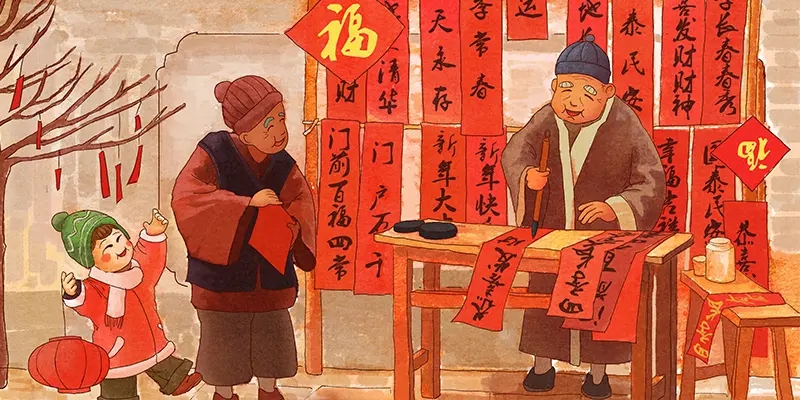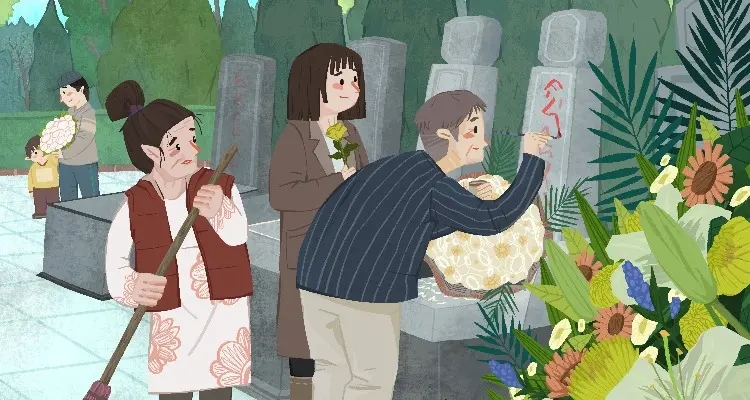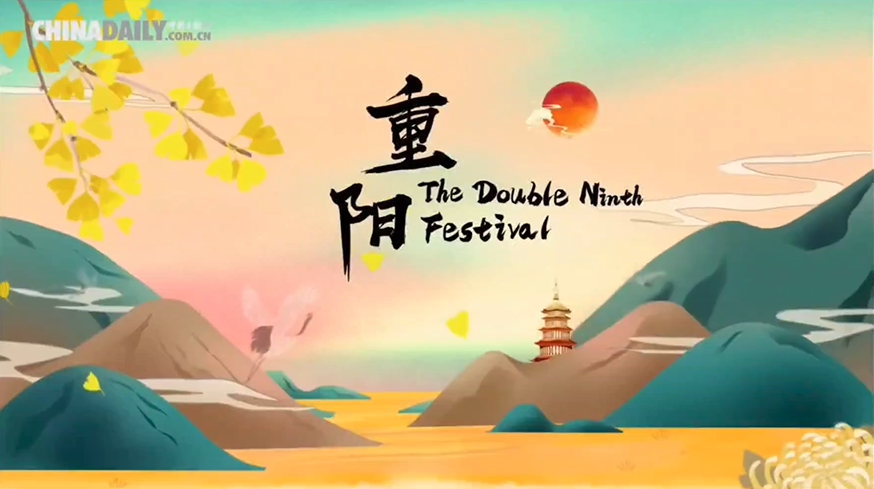Most traditional festivals took shape during the Qin Dynasty (221-206 BC), the first unified and power-centralized dynasty of China. By the Han Dynasty (206 BC-AD 220), China had experienced a great development period and major traditional festivals were fixed. In the most prosperous Tang Dynasty (AD 618-907), traditional festivals liberated themselves from primitive sacrifice, taboo and mystery and became more entertaining. From then on, festive occasions turned more brisk and exciting and more and more folk customs were developed. Some festivals and customs we still follow today, but others disappeared into the mists of time.
The formation of traditional festivals is a long process of historical and cultural accumulation in a nation or a state. Festival customs passed down to today still show signs of ethnic group struggles. Festival activities always reflect primitive sacrifice, superstitious taboo and earthly life, people's spirit and religious influence. Sometimes historical figures become the focus of a festival, showing people's commemoration for them and endowing some historical sense to it.
Moreover, traditional Chinese festivals were often connected with ancient astronomy, calendars and mathematics. Jieqi, or the 24 seasonal division points, is a key factor in forming traditional festivals. According to the traditional Chinese calendar, a year is divided into 24 points, which can accurately show seasonal changes and acts as a basic guidance system for agricultural production. The 24 seasonal division points came into being in the Warring States Period (475 BC-221 BC).
Boasting rich cultural meaning and a long history, traditional Chinese festivals compose an important and brilliant part of Chinese culture, but how can we introduce the Chinese festivals in English? The festivals introduced here have been selected for their traditional Chinese nature. Often the dates will vary from year to year because they are celebrated according to the Chinese calendar.
Chinese New Year
Chinese New Year is also called Spring Festival. It is the most important festival to Chinese people. Many activities are held to celebrate the festival, such as dragon dances, setting off firecrackers, making dumplings, etc.

China’s Lantern Festival
The Lantern Festival is traditionally the last day of the Chinese New Year period. It became a festival about 2,000 years ago. Billions of lanterns and giant lantern and drone displays makes the time festive.
Chinese New year, also called Spring Festival in China, marks the beginning of the Spring season. The Chinese Lantern Festival marks the final day of these celebrations. After the Lantern Festival, Chinese New Year taboos are no longer in effect, and all New Year decorations are taken down. Some people still wait till after the festival to return to work or study. The lanterns symbolize people letting go of the past year and welcoming the new year with good fortune.
Qingming Festival
Qingming Festival (around April 4) is Chinese people’s day for visiting graves and burial grounds to pray their respects to their ancestors. It's known as Tomb Sweeping Festival in English. Many Chinese also go for a picnic during Qingming Festival to enjoy the picturesque scenery of spring.

Originally, Qingming didn't relate to tomb sweeping or showing respect to ancestors. It is the second of the 24 solar terms on the traditional Chinese solar calendar. In Chinese, Qingming (清明) means 'clearness' and 'brightness'. The origin of the name was related to climate and nature in this season. At the beginning of April, it becomes noticeably warmer and brighter, and nature is waking up in northern/central China (this happens earlier in south China). People start to wear light cloths and walk outside to feel the growth in spring.
Dragon Boat Festival
The most popular and representative activity of Dragon Boat Festival is dragon boat racing. Dragon Boat Festival falls on month 5 day 5 of the Chinese lunar calendar (around mid-June). During this traditional festival in China, people customarily eat rice dumplings.

There are many legends about the origin of the Dragon Boat Festival. The most popular one is in commemoration of Qu Yuan. Qu Yuan (340–278 BC) was a patriotic poet and exiled official during the Warring States Period of ancient China. He drowned himself in the Miluo River on the 5th day of the 5th Chinese lunar month, when his beloved Chu State fell to the State of Qin. Local people desperately tried to save Qu Yuan or recover his body, to no avail. In order to commemorate Qu Yuan, every fifth day of the fifth lunar month people beat drums and paddle out in boats on the river as they once did to keep fish and evil spirits away from his body.
Chinese Mid-Autumn Festival
The Mid-Autumn Festival is the second most important festival in China after Chinese New Year. Chinese people celebrate it by gathering for dinners, worshiping the moon, lighting paper lanterns, eating mooncakes, etc.
Mooncakes are the most representative food for the Mid-Autumn Festival, because of their round shape and sweet flavor. Family members usually gather round and cut a mooncake into pieces and share its sweetness. Nowadays, mooncakes are made in various shapes (round, square, heart-shaped, animal-shaped etc.) and in various flavors, which make them more attractive and enjoyable for a variety of consumers. In some shopping malls, super big mooncakes may be displayed to attract customers.
The Double Ninth Festival
The Double Ninth Festival is also named Chongyang Festival. It is held on the 9th day of the 9th month of the Chinese lunar calendar (around mid-October). During the festival, enjoying chrysanthemums and climbing mountains are both popular activities in China. In ancient times, people believed that the double ninth day was worth a celebration. Since folk people had the tradition of climbing a mountain on that day, the Chongyang Festival is also called the Height Ascending Festival. The Chongyang Festival also has other names, such as the Chrysanthemum Festival. As "double ninth" is pronounced the same as the word meaning "forever," ancestors are also worshiped on that day.

As China is a vast land and has many ethnic groups, different ethnic groups have different festivals in different places. Even on the same festival, they follow different customs. Here we introduce some important and commonly celebrated festivals. In fact, these traditional festivals have absorbed nourishment from different regions and various ethnic cultures and are a precious cultural heritage for the whole Chinese nation and its guests.